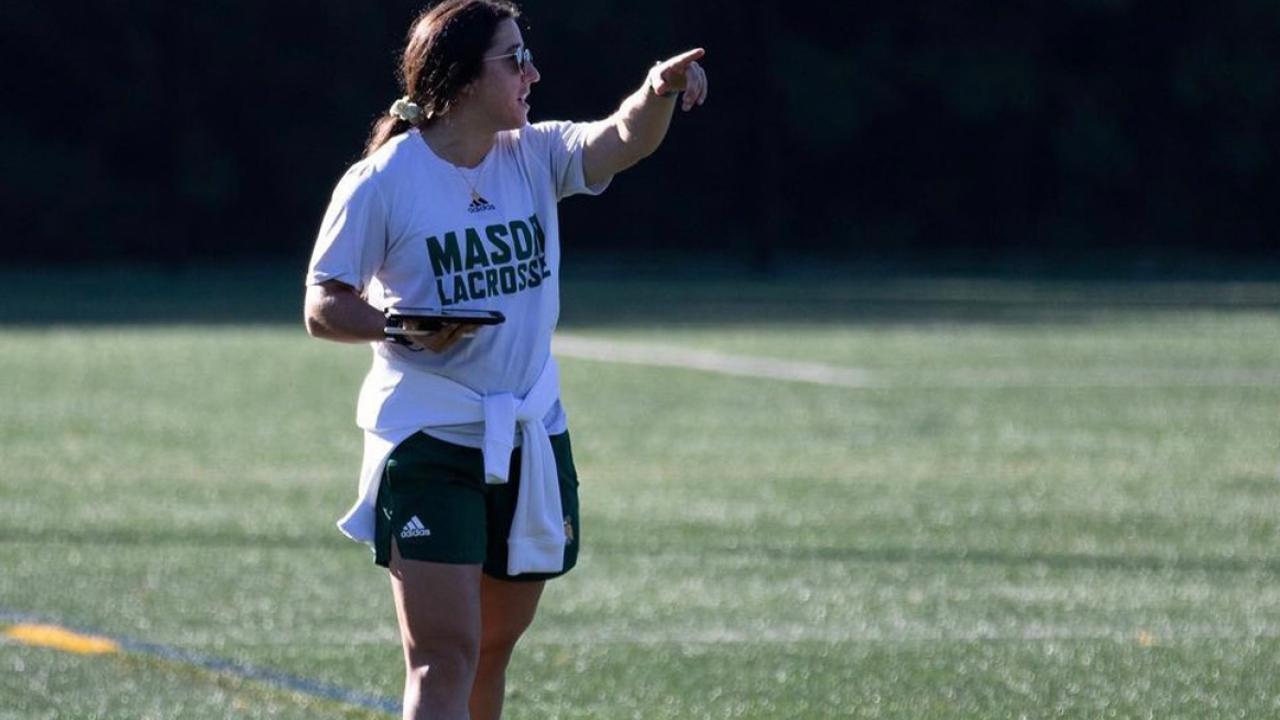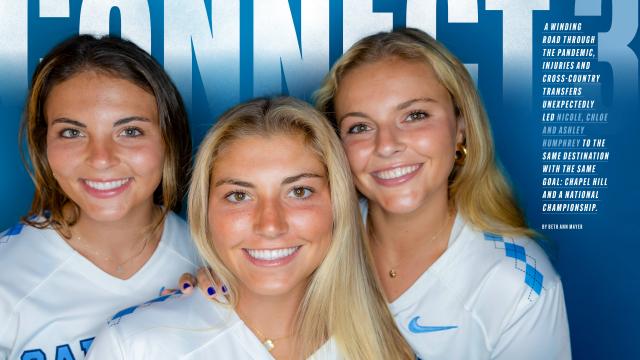
Behind the Whistle: Leading Through Discomfort
This story initially appeared on Behind the Whistle, the official blog of the IWLCA, and is being republished with permission from the organization. Lyndsey Munoz is an assistant coach at George Mason University.
When I first saw the opportunity in the IWLCA News Digest to be a facilitator for the Students of Color Leadership Academy, I didn't know it was something I could participate in and wasn't sure what I could offer. I thought it was incredible and needed to empower young women — especially those who experience most of life, and this sport, as marginalized.
I was uncertain because I am white and Spanish with a Hispanic ethnicity that I am honestly still learning about today. My dad was born in Spain, where his mom and most of his siblings still live. Despite this, I grew up with little Spanish culture ingrained in me beyond soccer, potato omelets, chorizo and the occasional conversations around bullfights, running of the bulls and King's Day. My first and only trip to Spain before trying out for the Spanish National Team in 2021 was in eighth grade. Although I naturally wish things were different, my parents did the very best they could to help me and my siblings succeed. We joked the other day there was barely time to eat with all our schedules back then!
Like many, COVID brought existential thoughts for me. I knew I wanted to learn more about my Spanish identity, and the Spanish National Team was the easiest way to start to bridge what I was comfortable in and what I wasn't. The process brought so much joy, and I learned so much, but there is still discomfort in fully feeling Spanish.
In coaching, we always tell our athletes to make themselves uncomfortable. This was a great time to practice what I preach and create the same bridge again. On the first day of the academy, we talked about a strength test we all took, the High5 Test, which I loved and was so excited to discuss. I learned my first lesson about being a facilitator during this first session. If you don't set the stage and expectations for the group, you'll likely leave with a roundtable of people answering questions instead of a conversation. I came in assuming we're in a “leadership academy” and these players will want to talk. The reality is that many 18–22-year-olds are the same in that it requires an extra effort for them to feel comfortable to speak openly. In hindsight, I should've known this as I was an equally reserved and quiet young person.
Something worth sharing that came up in that conversation was the theme of many of the participants — they were surprised by their strengths in leadership despite also considering themselves quiet. I could understand, as I often questioned this myself when I was younger. The reality of leadership, reinforced throughout the Academy, is that there is no one-size-fits-all despite many carrying images conveying otherwise. You don't have to be the biggest, loudest, or most charismatic person. You simply have to be yourself and care about the people you're leading. Of course, you'll have to speak if you want to lead, which also requires being vulnerable in doing so, but it's not how much you talk — it's what and mostly how you say things that people tend to remember.
Although the first discussion session was good, the next one left me speechless, from the content we discussed to the impact I felt afterward. I started this session with expectations, including the goal of having a free-flowing conversation and welcoming honesty and transparency. I also made everyone verbally agree to have a judgment-free zone. Our pre-work for this conversation was reading excerpts from "Meeting at the Table: African-American Women Write on Race, Culture and Community." It prompted a great discussion that began by reading the quote at the beginning of the assigned reading. I'm going to repeat it here because of how profound it is.
"If I do not bring all of who I am to whatever I do, then I bring nothing, or nothing of lasting worth, for I have withheld my essence," — Audre Lorde.
The conversation continued, and I learned how hard it is for our student-athletes of color to do this when they feel alone in their experiences. Likewise, I learned how hard it is for multi-racial student-athletes to feel a sense of true belonging, primarily when, as one reading described, skin tone defines much of how the outside world sees people. There is so much I will never understand about the experience of student-athletes of color. Still, after this session ended, they thanked me for creating a space where they could speak openly and feel connected to their peers. I was not expecting this at all, yet it was the most rewarding part of this experience — to be a part of the conversation and help facilitate it. As a coach, we aim to create safe and inclusive spaces for our athletes, to make their experience better or just as good as the ones we had on our teams.
The remaining conversations were equally rewarding and enlightening. I was able to own my discomfort and have real conversation about identity being both learned and genetic. I jumped on the presentation sessions to learn from both Amber Hill and Tari Kandemiri. The final topic of discussion in the small groups was ‘pivoting’. Pivoting is a topic I have grown to love as I’ve done so many times to follow my passions.
I am genuinely grateful to the IWLCA for allowing me to participate in this academy. It has made me a better coach and person and was rewarding in the best and most surprising ways. Shout out to the program participants who were able to see some potential in themselves to apply, even if they were uncertain, and further to those who brought their whole selves. Finally, thank you to the fellow coaches I got to know during this experience for doing this work to push the game forward. I already can't wait for next time.
Lyndsey Munoz
Related Articles





